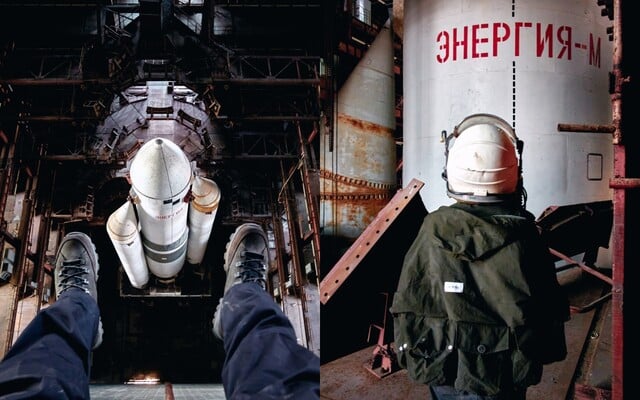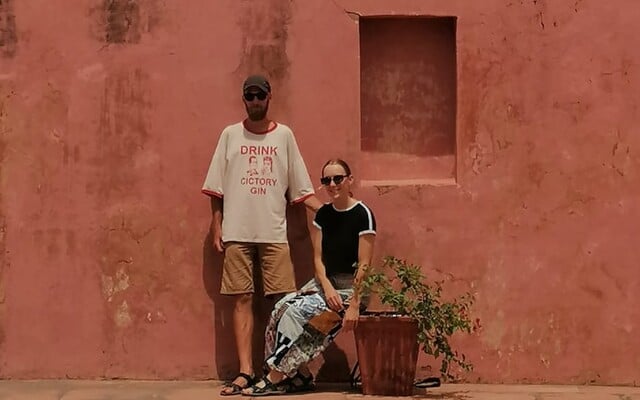 Latex model Natália: It turns me on to be a live f*ck doll. I can turn into a completely different person
Latex model Natália: It turns me on to be a live f*ck doll. I can turn into a completely different person
Latex model Natália: It turns me on to be a live f*ck doll. I can turn into a completely different person
Latex model Natália: It turns me on to be a live f*ck doll. I can turn into a completely different person
More Accessible Banking? Vacuumlabs Offers Breakthrough Fintech Solutions Across the Globe (Interview)
Matej Ftacnik leads the company Vacuumlabs, which is Exporting Globally Successful Fintech Solutions.
If problems persis, please contact administrator.
Matej Ftacnik is the CEO of Vacuumlabs, whose fintech solutions are taking the world by storm. For him, entrepreneurship is a way to improve things around him and help push society forward.
Vacuumlabs is one of the most successful Slovak technology companies. Initially he came in as a consultant and in time he joined the team of co-founders with a vision to turn Vacuumlabs into a global company.

As a young man, you were into science. Physics, to be specific. Why did you decide to choose a business path instead?
I was always drawn to business. I like it when I'm able to change things around me, and doing business is one way I can make it happen. I can come up with a product or a service that will appeal to customers and continue to work with them. I've always been into entrepreneurship, especially within the IT sector. I studied computer science. At first I had a smaller IT company, then we started collaborating with other partners, which was so successful that we ended up founding the first Slovak startup accelerator. The Vacuumlabs era came after that.
In 2012, you co-founded a co-working space. Two years later an accelerator for start-ups. Support and investing in up-and-coming companies was just getting started at the time. How did this idea come about?
It was an interesting time around 2009 or 2010, when there was such a positive energy around startups and people seeing business opportunities. First, various startup camps began to emerge, where there were few people initially. Then these activities grew to fifty, a hundred people and the functioning of startups started to be discussed on a regular basis.
We were meeting at various events across the country. However, we were lacking a space to meet regularly. Therefore with a few friends and entrepreneurs, we decided to establish the first co-working space called The Spot, which was our base for years. We talked about what startups are, how they work, how to invest in them, and this naturally resulted in establishment of the first accelerator.
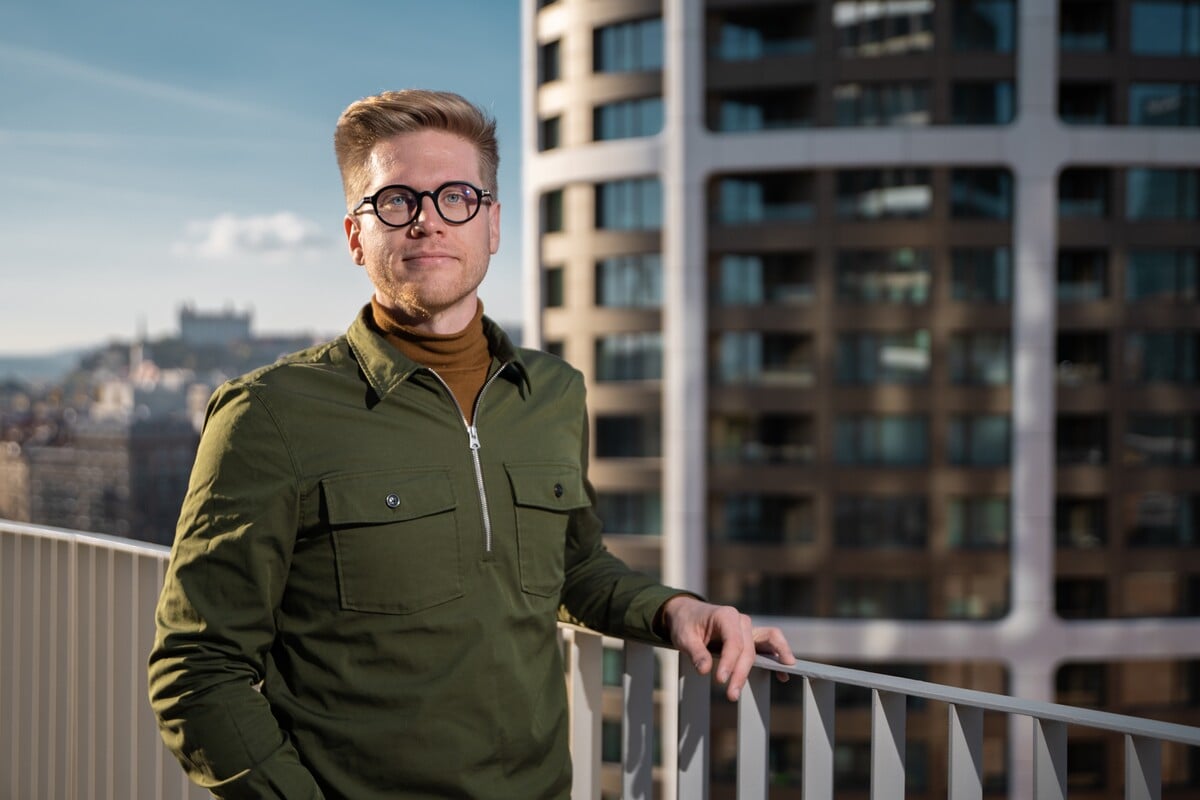
Was The Spot a place where you transferred your know-how to the startup founders, or was it also about allocating investments?
The Spot was a non-profit organization and operated on donations. Only later did we manage to establish an accelerator, where investments already ranged from 30 to 100 thousand euros.
Which of the well-known startups comes from this period?
For example, the Kickresume platform, which is very close to my heart. Originally, this startup was created as a CV generator, but today it is already so much more than that.
How has the startup ecosystem changed over the decade since you founded The Spot? One of the projects that was created within our premises at that time was Slido, initially with three members. Today it employs more than two hundred people and has been bought by Cisco. It's a beautiful and successful project from Slovakia, which has gained major success in America as well. We now have a decade more experience and we have multiple stories on how to build a successful company and then sell it. Whether it's Exponea or Slido.
I was intrigued that you've met the co-founders of Vacuumlabs at physical competitions. One was your competitor, the other was the leader of the programme…
Yes, there's three of us co-founders. One thing I learned during the accelerator period was that it's more exciting for me to do things and not advise others on how to do them. I wanted to experience what it's like to build and move the company forward. I was also present at the establishment of Vacuumlabs, but for the first few years I was only an external consultant. Eventually, I left Spot to join Vacuumlabs because I wanted to be part of the process of a small tech company becoming a global player in the world of fintech.
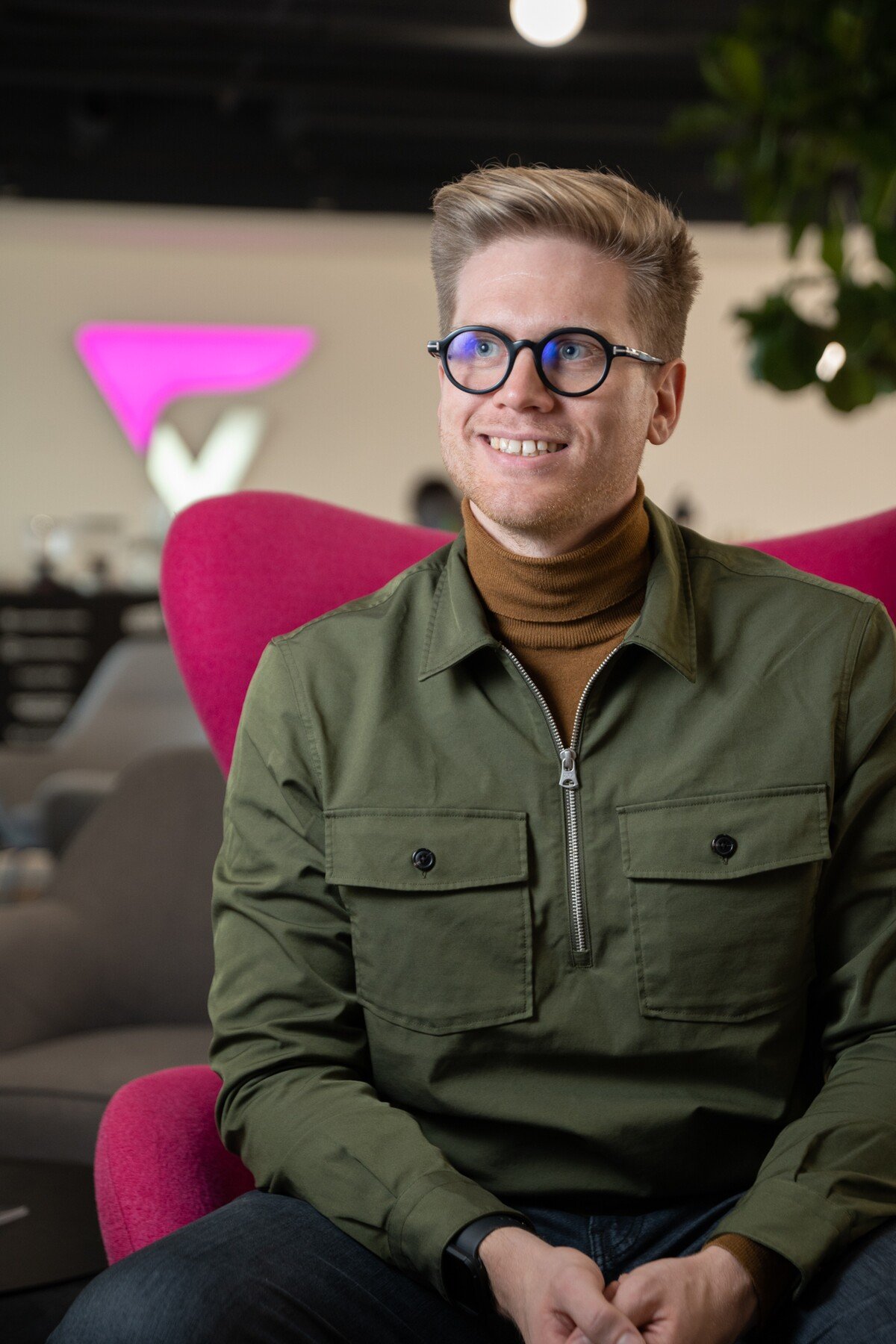
What happened to Spot afterwards?
We gradually closed it down. Two rounds of acceleration completed successfully, but we didn't proceed for several reasons.
What was Vacuumlabs like in the beginning and what's it like now?
At Vacuumlabs, we emphasize that we want to do projects and work on things that make sense to us. This has been the case since day one, and to this day we know that we simply won't go into certain industries. We aspire to do things that have a positive effect on people.
We believe that if we improve people's access to money, we will also improve their lives. If they have more equal, simpler and fairer access to finances, they will be better off. Therefore, we are active in the fintech industry, since this can have an impact on the overall improvement of the situation. We also deal with matters in the medtech and legaltech sectors.
We believe that if we improve people's access to money, we will also improve their lives.
For us, a more equal society means a safer society. And a healthier society is a better society. These are the values we stand for. There are currently several hundred people in the company who are developing products around the world. At the beginning it was a small company with a few local clients. The big change came when we started to prioritize foreign projects.
While working in the accelerator, I have learned that Slovakia has excellent technologically educated people and wise people in the field of project management. However, if we want to do global projects, we must find partners whose projects are global.
What is the difference between the fintech you are working on and the classic banking system that most people in our country use?
It is beyond comparison. Fintechs are businesses that help you innovate and improve access to money at all possible levels.
Unlike a traditional bank, where it takes several days to open an account, it is basically immediate. It takes about a week to process the loan, in just a few minutes. You can purchase stocks or cryptocurrencies in a very simple way by using fintech.
Of course, some more progressive banks are getting into it as well. However, I keep saying that the level of Slovak banks is significantly higher on the European scale or even within the world. I think that we can export the ability to do good banking services.

Are there such financial services in the world that haven't yet reached Slovakia, but are already commonly available abroad?
We lack a good business account solution here. We're lacking an account that wouldn't only give you an option to save money on it, but also had a service that would advise you on whether you will have enough for next month's salaries. If you don't, it can advise you on where you can borrow. At the same time, it would be able to pre-fill the tax return and many other things. Such services are common in Germany, France or Britain.
Why do we have to get paid on the fifteenth of the month and not have money sent to our account at any time?
Another thing is Salary Financing. Why do we have to get paid on the fifteenth of the month and not have money sent to our account at any time? Every morning, for example. It is also a technology that has been working for a long time in other countries.
Next is investing. There's low financial literacy in Slovakia, and when people decide to invest, they use the services of financial advisors or products offered by banks. And they may not always be the best option. In some countries there are robo-advisors that manage your investments.
Allegedly, you'd like to create a solid sole-trade account in Slovakia. How is this project doing?
We are still looking for a partner who would go into it with us. We did a survey and such a smart sole trade account definitely makes sense. If we find a suitable partner, we can get started on it right away. As I mentioned previously, I imagine that the account would be able to pre-fill the tax return, create a finance statement and, for example, be able to directly generate invoices.
One of the fintechs you've managed to create is Daylight, the first LGBT+ banking platform in America. What was the impulse for creating it?As I've already mentioned, a more equal and fair approach in banking raises the standard of living and ensures a higher quality of life. Among other things, minority groups have more complicated access to finance. As we travel the world and often help start new banks, I knew that the LGBT+ community does not have such easy access to finance. For various reasons, the financial literacy is also lower than the majority.
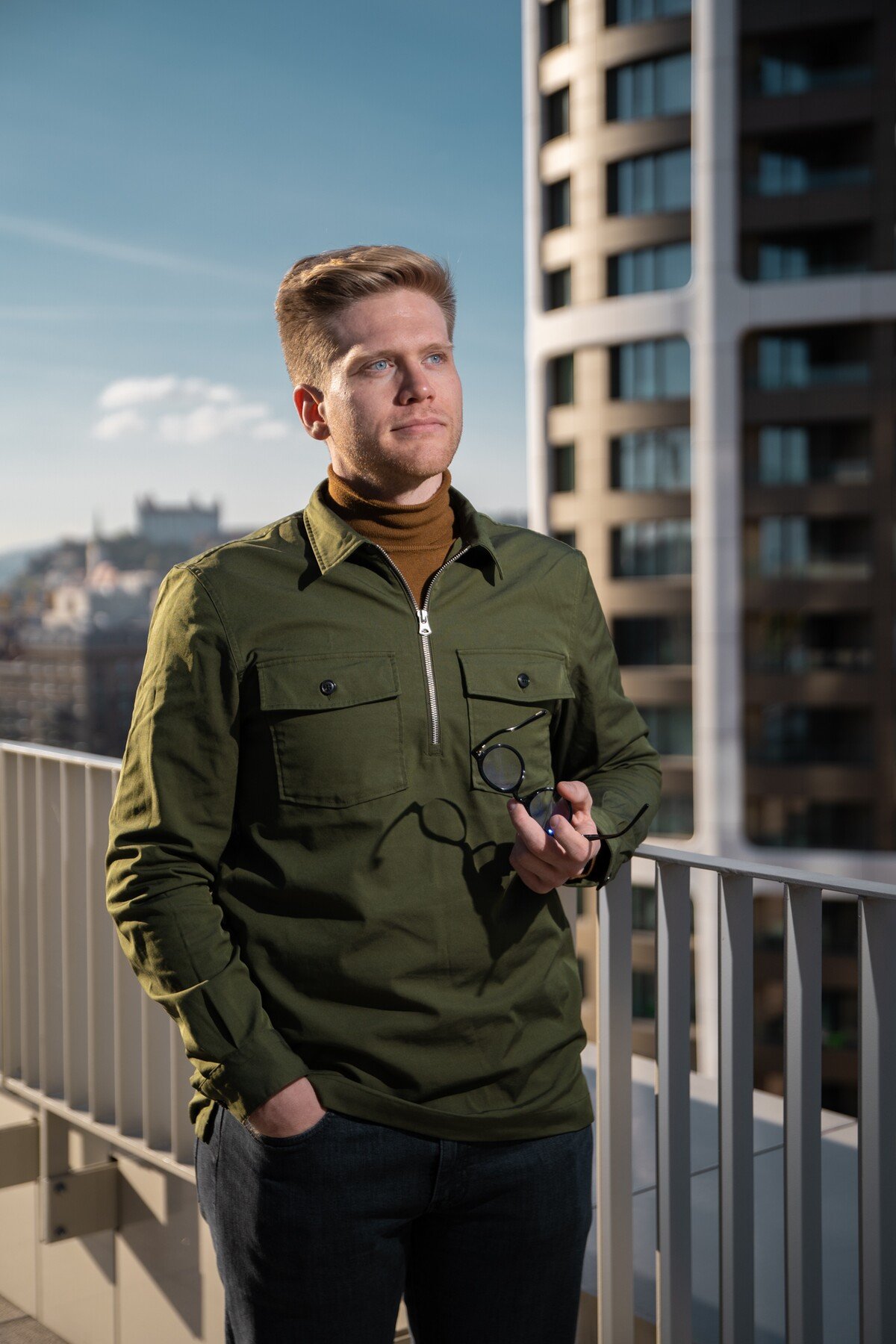
Are the conditions under which people receive loans and mortgages problematic in particular?
Exactly. For example, when you get a mortgage in America, heterosexual couples often have different credit rates than LGBT+ couples, although this shouldn't be happening. Also, some specific life situations, such as surrogacy or gender reassignment, are very costly in the United States. It would be nice if there was a bank that could offer a loan or help them otherwise.
Can you imagine gradually expanding Daylight to Europe?
Today, Daylight has a team that makes all of the decisions. We're only in it as shareholders, and I am grateful I've put together a team that pushes the business forward at the time when it was founded. We are also talking to them about the possibility of expanding Daylight to the European market, because it is undoubtedly an interesting opportunity. In any case, the priority is to get an interesting number of users in America first.
The crypto-wallet Adalite is also on your portfolio. What's your opinion on the world of cryptocurrencies?
Cryptocurrencies and blockchain technology are a very interesting space. There is a lot of innovation in it, but it's also a place where many people want to make money quickly and make unfair moves. I would tell an ordinary customer to be careful about what they want to invest in. I think it's better to buy big cryptocurrencies like bitcoin and keep them for years. To take it as a long-term investment and not speculate. The world of cryptocurrencies is such an interesting force that I think it will be around for a long time.
What is currently on your portfolio?
Vacuumlabs, of course, and multiple spin-offs, which we've helped build gradually. We have established an innovative law firm Sparring, which helps startups and investors with legal services. This is the legaltech section. Then there is Trama™ that automated the way to register trademarks in different countries of the world. Normally, one has to wait for seven days. Thanks to Trama it is much less.
We have established an innovative law firm Sparring, which helps startups and investors with legal services.
Verdikto is also an interesting project. It's a marketplace between lawyers and citizens. A typical scenario is that if we get into a situation where we need a lawyer, we often go to the one that's around the corner or the one that's recommended by acquaintances. However, each lawyer usually excels in one field such as family or business law. Verdicto connects people with the best lawyers in the field and it's much cheaper than a regular law firm.
Another product is the aforementioned Adalite, and also Daylight. We took The Spot under the roof of Vacuumlabs as well. We'd like to gradually expand to other locations.
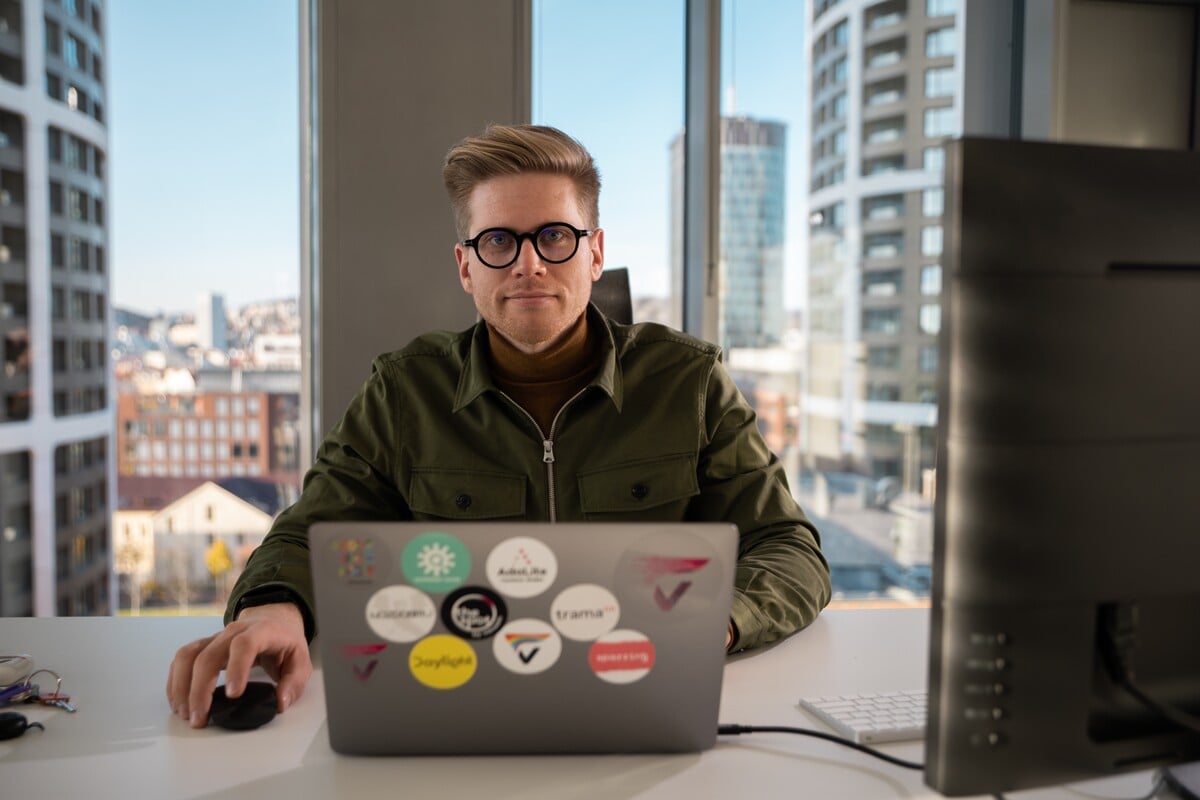
So are you planning to restart the accelerator?
It will be more of a co-working space. Today, The Spot hosts about 15 to 20 companies. We are thinking of expanding to Hungary or Czech Republic next.
In May, you've progressed from CXO to CEO and took the lead over the company. What is your vision for the near future?
The change has been agreed upon together with my partners, as we believed that it was the best thing for the company and further growth. My co-founder and previous CEO Samo Hapak has become a CEO of one portfolio company and still remains active at Vacuumlabs in the company's board of directors.
We're expecting an expansion of the number of spin-offs next year. We would like to create four more and bring them to life. As for Vacuumlabs, we'd like to expand to other places outside of Europe as well. Maybe Latin America or South-East Asia.
We want to work on interesting fintech systems, such as the Buy Now Pay Later (BNPL), which is already in full use in America, and we also want to focus on improving the banking system in the Balkans. A new bank in Southeast Asia is also planned. These are the things we are currently working on.
Your company grows by an average of 30 people a month. Can you guess the number you're likely to land at the end of next year?
Let's say that there'll be 750 or 800 of us in the group. I don't think that will be far from the truth. Vacuumlabs has 350 people today and about 130 people that work in affiliated organisations.
What motivates you the most to look for ways to keep on moving further ahead?
Being able to have a positive impact on things around you. For a person to have that, he must be part of a sufficiently large and strong company. At the same time, the right values are also necessary. I mentioned fintech. We know that the more we simplify people's access to money, the better the various communities will be.
Speaking of legaltech, the fairer a company is, the more resilient it is to misinformation and disintegration of society. And the more we do in the medtech, in which we created our speed test for covid, the healthier, better and more functional the society.
You choose to do business in areas such as finance, law or the aforementioned medicine. These are industries full of regulations and rules. Is it a challenge for you to choose the most difficult path?
I think it's great that it's challenging. If it wasn't, everyone would do it. If something is difficult, it means that it's also important. We will gladly do important things that have a purpose.
You have helped launch many startups and you're leading a successful company yourself. What are in your opinion the prerequisites that a person must have in order to succeed in business?
They certainly shouldn't be afraid. It's also necessary to find the right companions who aren't afraid to discuss and oppose them. It's like a marriage - for better or for worse. There's no need to be paralyzed by all the things that await young entrepreneurs on their way. And, of course, you need to sensibly choose an interesting problem that your business will solve. Not because of money, but because it deeply matters on a personal level.
If problems persis, please contact administrator.












